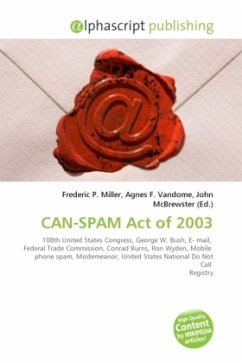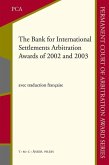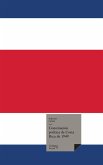The CAN-SPAM Act of 2003 (15 U.S.C. 7701, et seq., Public Law No. 108-187, was S.877 of the 108th United States Congress), signed into law by President George W. Bush on December 16, 2003, establishes the United States' first national standards for the sending of commercial e-mail and requires the Federal Trade Commission (FTC) to enforce its provisions. The acronym CAN-SPAM derives from the bill's full name: Controlling the Assault of Non-Solicited Pornography And Marketing Act of 2003. This is also a play on the usual term for unsolicited email of this type, spam. The bill was sponsored in Congress by Senators Conrad Burns and Ron Wyden. The CAN-SPAM Act is commonly referred to as the "You-Can-Spam" Act because the bill explicitly legalizes most e-mail spam. In particular, it does not require e-mailers to get permission before they send marketing messages. It also prevents states from enacting stronger anti-spam protections, and prohibits individuals who receive spam from suingspammers. The Act has been largely unenforced, despite a letter to the FTC from Senator Burns, who noted that "Enforcement is key regarding the CAN-SPAM legislation."
Bitte wählen Sie Ihr Anliegen aus.
Rechnungen
Retourenschein anfordern
Bestellstatus
Storno








